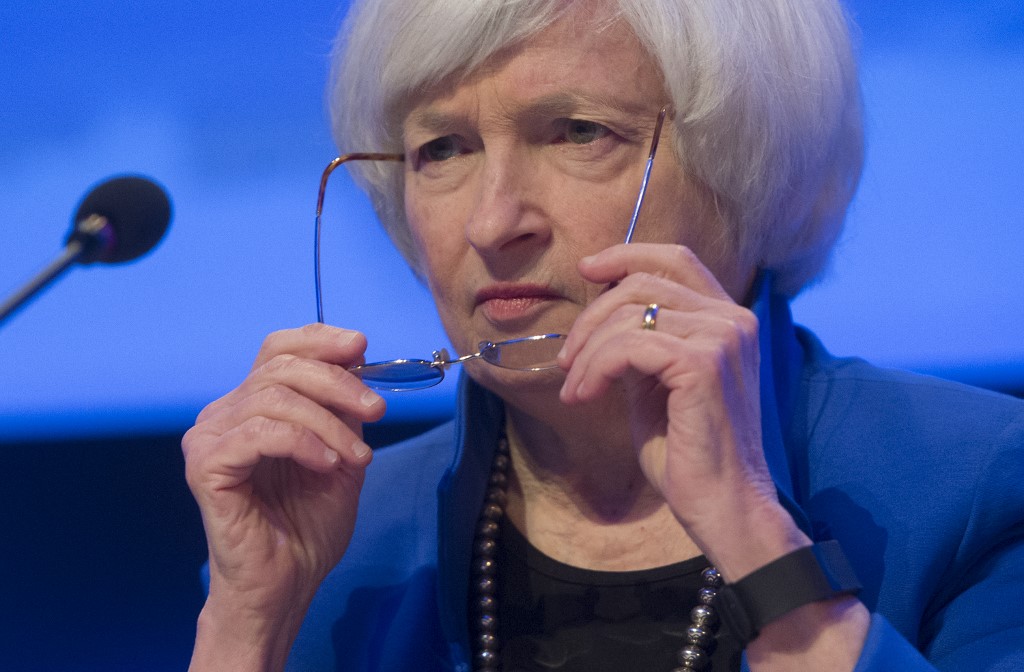(ATF) Bitcoin’s day in the sun may be coming to an end.
While credit company Mastercard added to the excitement by saying the digicurrency would be added to its network, US Treasury Secretary Janet Yellen dialled down the tone, warniong of an “explosion of risk” from virtual markets
At the same time Investors in Elon Musk’s high-flying electric carmaker are questioning whether the company;s $1.5 billion outlay into bitcoin will be as good for the company as it has been for the cryptocurrency.
And influential economist Nouriel Roubini slammed bitcoin, saying it was being pushed by “snake oil salesmen”.
Also on ATF
- Malaysia suffers worst economic hit since 1998 financial crisis
- Copper hits 8-year high on green demand, post-pandemic stimulus
- China’s finance ministry summons Deloitte over violations claims
Yellen said the misuse of cryptocurrencies could pose dangers to the economy.
Cryptocurrencies and virtual assets offered promise, but they had also been used to launder the profits of online drug traffickers and to finance terrorism, she warned.
However, Yellen said new financial technologies could also help fight crime and reduce inequality.
Dark money
In remarks to a financial sector innovation roundtable, the former Fed chief said such technologies could be used to stem the flow of dark money from organised crime and fight back against hackers, but also to reduce digital gaps in the United States.
Passage of the Anti-Money Laundering Act in December would allow the Treasury Department to rework a framework for combating illicit finance that has been largely unchanged since the 1970s.
“The update couldn’t have come at a better time,” Yellen told policymakers, regulators and private sector experts. “We’re living amidst an explosion of risk related to fraud, money laundering, terrorist financing, and data privacy.”
Roubini led a blistering attack on cryptocurrencies. In the Financial Times he said digital assets such as bitcoin should not be considered currencies because “virtually nothing is priced in them” and “they are barely used by legitimate companies”.
“Another bust”
Predicting the bitcoin bubble will end in “another bust” the Stern School of Business professor at New York University said the asset doesn’t “belong in the portfolios of serious institutional investors”.
“Many of its retail backers are suckers being manipulated by an army of self-serving insiders and snake oil salesmen,” Roubini wrote.
His comments came as Mastercard said it was planning to offer support for some cryptocurrencies on its network this year.
Asset manager BlackRock Inc and payments companies Square and PayPal have also recently backed cryptocurrencies.
Mastercard already offers customers cards that allow people to transact using their virtual assets, although without going through its network.
“Doing this work will create a lot more possibilities for shoppers and merchants, allowing them to transact in an entirely new form of payment. This change may open merchants up to new customers who are already flocking to digital assets,” Mastercard said.
Add volatility
Mastercard specified that not all cryptocurrencies will be supported on its network.
Tesla’s disclosure on Monday that it had moved nearly 8% of its reserves into bitcoin sent the price of the cryptocurrency to all-time highs, up more than 16% this week, while Tesla’s shares are down nearly 6%.
Others may follow Tesla’s lead, with Twitter’s chief financial officer telling CNBC that the company has considered adding bitcoin to its balance sheet.
Shareholders voiced concern that the investment by Tesla, which recently joined the benchmark S&P 500 stock index, could fuel more gyrations in the company’s shares.
“It will add volatility to the stock due to exposure to bitcoin,” said King Lip, chief strategist at Baker Avenue Wealth Management, whose firm has owned Tesla shares since 2015. “This is better for bitcoin than it is for Tesla.”
Gary Black, former chief executive of Aegon Asset Management and now a private investor who has been bullish on Tesla since 2019, on Monday announced on Twitter that he had sold his Tesla shares. He cited the absence of a 2021 delivery target and the company’s riskier capital allocation strategy, among other reasons.
- Reporting by Reuters
























